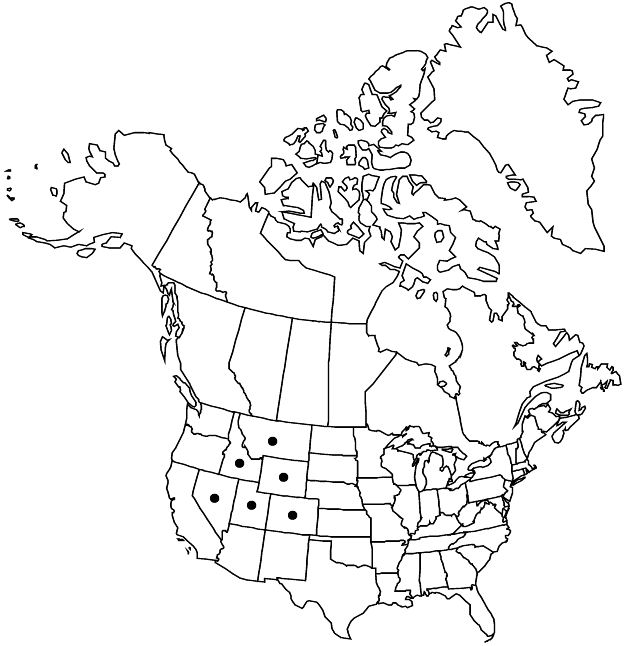Difference between revisions of "Potentilla ovina var. decurrens"
Great Basin Naturalist 42: 30. 1982.
imported>Volume Importer |
(No difference)
|
Latest revision as of 12:58, 30 July 2020
Stems: lengths (1.5–) 2–3 times basal leaves. Basal leaves 2–10 (–13) × 1–3.5 (–5) cm; petiole 0.5–3.5 (–5) cm; lateral leaflets on distal 1/2–2/3 (–3/4) of leaf axis, ± separate, distal leaflets narrowly cuneate-oblanceolate to obovate, (0.5–) 1–2 (–3.5) cm, distal 1/4–1/2 (–3/4) of margin unevenly to pinnately incised 1/2–2/3 (–3/4) to midvein, teeth 2–5 (–7), ovate to oblong, 1–7 × 1–2 mm, surfaces green, hairs absent (except on margins) or sparse, 0.5–1 mm. Achenes 1.5–1.8 mm.
Phenology: Flowering summer.
Habitat: Dry meadows, stony slopes, exposed ridges and summits, alpine and subalpine
Elevation: 2400–3800 m
Distribution

Colo., Idaho, Mont., Nev., Utah, Wyo.
Discussion
Variety decurrens at its most distinctive has elongate cuneate-oblanceolate, glabrate, apically toothed leaflets that are well spaced on the leaf axis. This extreme is most commonly found in the Uinta Mountains of Utah and the Medicine Bow Mountains of Wyoming. Collections from Colorado, Idaho, Montana, and Nevada are more equivocal and might represent hybrids or extreme forms of other (or undescribed) taxa.
Although B. C. Johnston (1980) is provisionally followed in associating var. decurrens with Potentilla ovina, comparisons can also be made with P. drummondii and P. glaucophylla, both placed here in sect. Graciles. Apparent intergradation exists in all directions.
Selected References
None.
Lower Taxa
"thin" is not a number."dm" is not declared as a valid unit of measurement for this property."(" is not declared as a valid unit of measurement for this property."dm" is not declared as a valid unit of measurement for this property."dm" is not declared as a valid unit of measurement for this property.